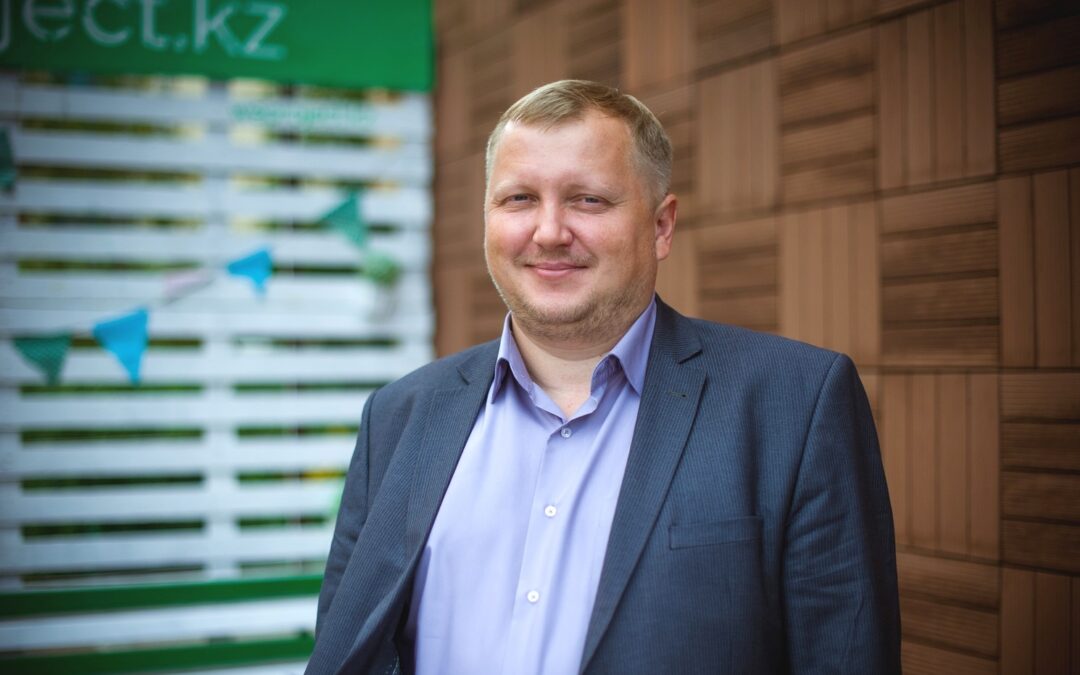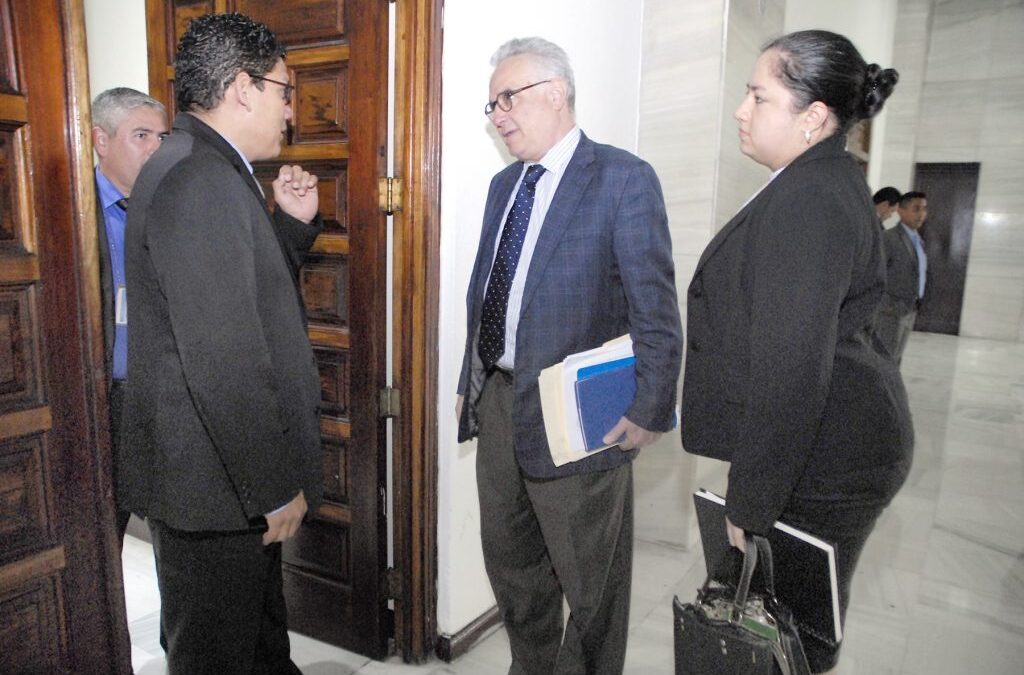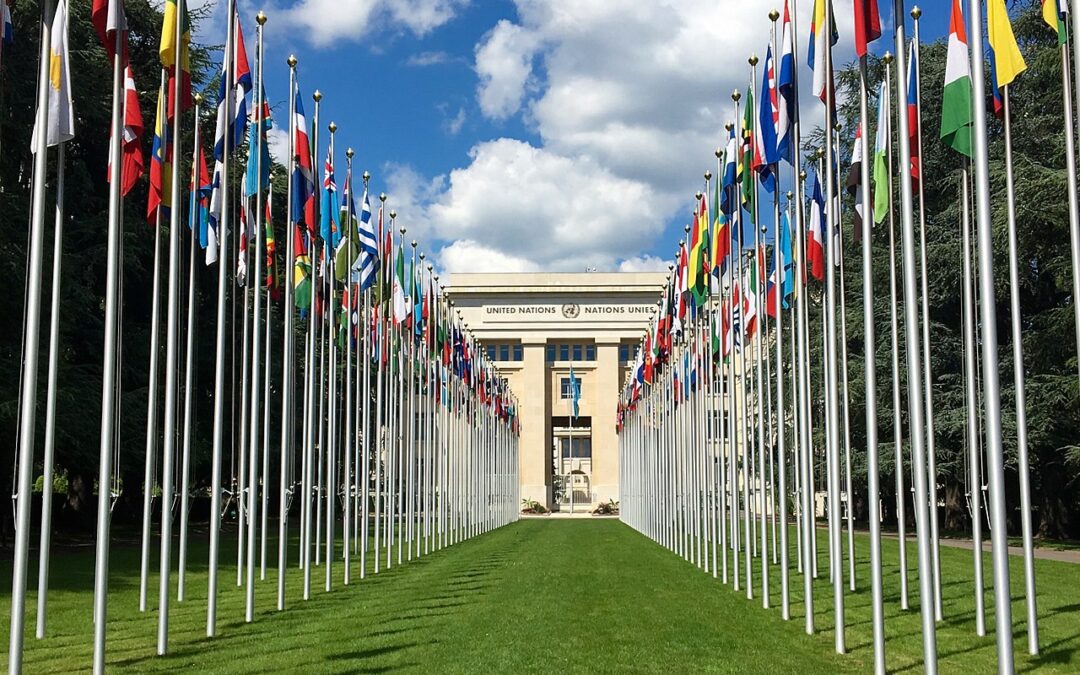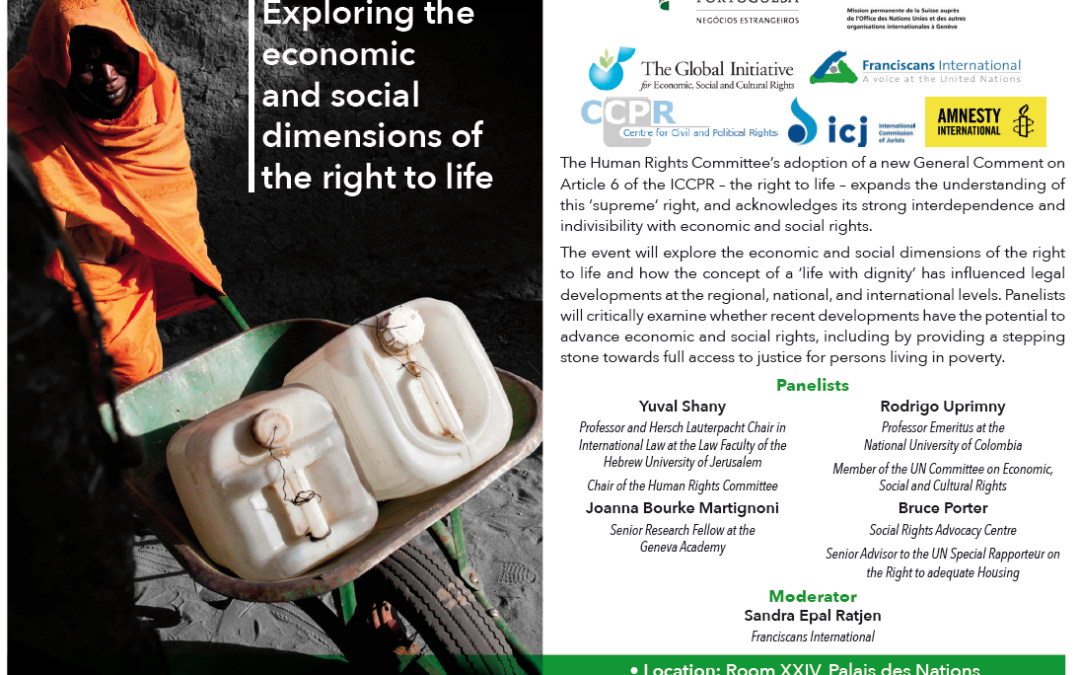
Mar 6, 2019 | News
Today, the ICJ expressed concern at the initiation of disbarment proceedings by the Ministry of Justice of Kazakhstan against Sergey Sizintsev, former Executive Director of the National Bar Association and the newly-elected head of the Scientific-Consultative Board of the National Bar Association.
The official ground for disbarment of Sizintsev is his work as the Director the National Bar Association in 2016-2018 while continuing his legal practice at the same time.
On his facebook public account, however, Sizintsev alleged that this initiative is not related to the officially stated grounds, and that in fact continuing to practice while working as Director of the Bar Association is clearly permitted by the Kazakhstan’s law. Rather, he alleges, he is being pursued for his criticism of the law “On lawyers’ activity and legal aid” as well as his public statements in different international and national fora in regard to issues related to the independence of the legal profession.
The ICJ recalls that freedom of expression and association, in particular, constitute essential requirements for the proper and independent functioning of the legal profession and must be guaranteed by law and in practice.
According to Principle 23 of the UN Basic Principles on the Role of Lawyers, lawyers “[…] have the right to take part in public discussion of matters concerning the law, the administration of justice and the promotion and protection of human rights and to join or form local, national or international organizations and attend their meetings, without suffering professional restrictions by reason of their lawful action or their membership in a lawful organization. In exercising these rights, lawyers shall always conduct themselves in accordance with the law and the recognized standards and ethics of the legal profession.”
Sergey Sizintsev as Executive Director of the National Bar Association and as a member of the Parliament working group on the Law on Lawyers’ Activities, was expected to voice concerns of members of the legal position including on the new law which the legal profession consider to be restrictive.
Moreover, his position demanded that he expresses his position on behalf of the National Bar Association including to draw attention to legislative developments which can jeopardise the independence of the legal profession in Kazakhstan.
The ICJ is concerned that this initiative appears to constitute an attack on the independence of lawyers in Kazakhstan and may have a chilling effect on members of the legal profession.
The ICJ therefore calls on the Ministry of Justice to end this lawsuit immediately.
The ICJ will closely follow the case of Sergei Sizintsev and the proceedings at the Rayon Court in Petropavlovsk.
In December 2017, the ICJ organized a mission to Kazakhstan and raised concerns over the then planned reform.
In November 2018, the ICJ raised concern at the disbarment proceedings against Presidents of Aktybinsk and Pavlodar Bar Association as well as resignation of Anuar Tugel, the President of the National Bar Association of Kazakhstan, allegedly as a result of the pressure from the Ministry of Justice.

Mar 6, 2019 | Comunicados de prensa, Noticias
La CIJ expresa profunda preocupación por el nombramiento del nuevo Director de Seguridad Institucional de Jueces y Juezas, nombrado por la Corte Suprema de Justicia y los efectos negativos que ello conlleva en las y los jueces independientes e imparciales.
Ante la denuncia que hiciera la Asociación Guatemalteca de Jueces por la Integridad (AGJI) y el Sindicato de Trabajadores del Organismo Judicial (STOJ), la CIJ se permite llamar la atención de la Corte Suprema de Justicia (CSJ), para que asuma con seriedad dicha denuncia.
La CIJ considera que existen razones fundadas para dicha denuncia y que el nombramiento del señor Roberto Mota Bonilla, lejos de brindar más confianza a las y los jueces sobre su protección, causa mayor frustración y dudas.
El señor Roberto Mota Bonilla perteneció a la Secretaría de Inteligencia y la Secretaría de Asuntos Administrativos y de Seguridad de la Presidencia (SAAS) y por lo tanto, existen indicios que comprometen su independencia, por tener cercanía con el Poder Ejecutivo, uno de los tres Poderes del Estado que, es evidente, viene interfiriendo en la Independencia Judicial desde antes del año 2017 y con más fuerza a partir de agosto de dicho año.
Desde su nombramiento, las y los jueces independientes e imparciales, han venido sufriendo una serie de actos que pueden calificarse como presiones, intimidaciones, limitaciones a su función, vigilancia y control injustificados, que pueden llegar a afectar seriamente la independencia judicial y el debido proceso en los casos que dichos jueces conocen.
Las Naciones Unidas, al aprobar los Principios Básicos Relativos a la Independencia de la Judicatura, declaró en el principio 2: “Los jueces resolverán los asuntos que conozcan con imparcialidad, basándose en los hechos y en consonancia con el derecho, sin restricción alguna y sin influencias, alicientes, presiones, amenazas o intromisiones indebidas, sean directas o indirectas, de cualesquiera sectores o por cualquier motivo”.
Además, según dichos Principios, la ley debe garantizar no sólo la permanencia en el cargo de los jueces por los períodos establecidos, sino que también su independencia y seguridad, así como una remuneración, pensiones y condiciones de servicio y jubilación adecuadas. (Principio número 11. Sobre las Condiciones de servicio e inamovilidad).
De manera más específica, el Proyecto de Principios sobre la Independencia del Poder Judicial, dispone en el artículo 27 que: “Las autoridades ejecutivas tendrán el deber de garantizar la seguridad y la protección física de los miembros del poder judicial y de sus familias, en especial en caso de que sean objeto de amenazas”[1].
Este principio es desarrollado también en el artículo 2.23 de la Declaración Universal sobre la Independencia de la Justicia (Declaración de Montreal, aprobada en la Conferencia Mundial sobre Independencia de la Justicia), al establecer que “el Poder Ejecutivo deberá garantizar la seguridad y la integridad física de los jueces y de sus familiares”.
Los Principios de Siracusa son aún más explícitos. Bajo el apartado de “protección física”, el artículo 27 establece que las autoridades ejecutivas “tendrán el deber de garantizar la seguridad y la protección física de los miembros del poder judicial y de sus familias, en especial en caso de que sean objeto de amenazas”.
O sea que dichos principios, consideran obligación del Poder Ejecutivo garantizar la seguridad y contar con la proteccion física de las autoridades competentes, tanto si se trata de amenazas personales y directas, como en una situación general relacionada con el orden público o la seguridad interna de una Nación. En todo caso, las y los jueces deberán poder desempeñar sus funciones con la calma y la seguridad que requiere su función.
En tal sentido, la CIJ hace un enérgico llamado a las y los magistrados de la Corte Suprema de Justicia, para que tomen con seriedad las denuncias presentadas por miembros de la AGJI y que destituya cuanto antes al Señor Mota Bonilla, por no garantizar independencia de criterio, ni objetividad en la protección de jueces y juezas. Al contrario, dicho nombramiento puede repercutir muy negativamente en la seguridad de jueces y juezas.
La CIJ expresa que en diferentes oportunidades ha señalado que la proteccion de jueces y juezas es esencial en un Estado de Derecho, para que puedan cumplir con su función en forma independiente e imparcial y buscando la mayor protección de los derechos humanos de las y los ciudadanos.
En el presente caso, todo parece indicar que mediante dicho nombramiento, se busca socavar la independencia judicial y afectar la función que llevan a cabo jueces y juezas independientes e imparciales.
Ramón Cadena, Director de la Comisión Internacional de Juristas para Centroamérica expresó: “En un Estado como el de Guatemala, cooptado por el crimen organizado, éste debe ser un tema que el Poder Judicial debería analizar más a fondo y con mucho detenimiento, para brindar las soluciones más adecuadas a las y los jueces. Todo indica que el nombramiento del señor Roberto Mota Bonilla es un paso más hacia la militarización del Estado de Guatemala. Los magistrados de la Corte Suprema de Justicia, deberían destituir al señor Roberto Mota Bonilla y abrir un espacio de diálogo con las y los jueces afectados y con la sociedad civil, para tratar este tema tan importante para la seguridad de las y los jueces, para la Independencia Judicial y para el fortalecimiento del Estado de Derecho.”
Foto: Ramón Cadena, director de la CIJ, se reunió ayer con los magistrados de la Cámara Penal.
[1] Comité de Expertos de la Asociación Internacional de Derecho Penal, la Comisión Internacional de Juristas y el Centro para la Independencia de Jueces y Abogados. Proyecto de Principios sobre la Independencia del Poder Judicial, mayo 1981.

Mar 5, 2019 | News
States at the United Nations Human Rights Council in Geneva should ensure that Egypt is not allowed to seize a leading role in relation to the mandate of the United Nations’ expert on human rights and counter-terrorism, nine international human rights organizations, including the ICJ, have said.
In light of Egypt’s record of severe and widespread abuse of counter-terrorism measures to violate human rights, the organizations warned against attempts by Egypt to undermine the expert’s mandate.
The mandate of the UN Special Rapporteur on the promotion and protection of human rights and fundamental freedoms while countering terrorism is due to be renewed in the coming weeks at the ongoing Human Rights Council session in Geneva.
Mexico has for many years led the resolution that established and maintained the expert, but is understood now to be in discussions with Egypt about a possible leadership role for Egypt.
Other changes to the resolution text may also be under consideration.
“Egypt has an appalling record of abusing counter-terrorism measures against human rights defenders and other dissenting voices, and was recently denounced by the UN Special Rapporteur on human rights defenders for severe reprisals against people who spoke with another visiting UN expert,” said Matt Pollard, Senior Legal Adviser and UN representative for the ICJ.
“To give such a country shared leadership on the renewal of the mandate of the UN’s expert on human rights and counter-terrorism would only do further harm to civil society and others in Egypt and elsewhere, undermine the work of the expert and the UN as a whole, and badly tarnish the long history of leadership Mexico has shown on these issues,” he added.
Nine organizations – ICJ, Amnesty International, ARTICLE 19, Cairo Institute for Human Rights Studies, CIVICUS/World Alliance for Citizen Participation, International Federation for Human Rights (FIDH), Human Rights Watch, International Service for Human Rights, and Privacy International – had earlier sent a joint letter to all countries representatives in Geneva highlighting their concerns.
This was followed by a joint oral statement at the Human Rights Council session on 1 March, during an interactive dialogue with the special rapporteur.
Egypt has gradually sought to dilute or distort the longstanding focus of the UN Human Rights Council’s work to protect and promote human rights and fundamental freedoms while countering terrorism, the groups said.
In 2018 it succeeded in watering down the council’s longstanding thematic resolution on the topic, in which states annually recognize concerns about abuses and urge respect for human rights at a global and abstract level.
However, any move to gain control over the resolution on which the mandate of the special rapporteur depends, or to dilute or reframe her mandate, would have far deeper and further-ranging damaging effects.
The special rapporteur acts on individual complaints, reports on the situation in particular countries, and addresses in detail topics relating to counterterrorism work around the world on an ongoing basis.
The special rapporteur also serves an essential function in providing independent oversight of counterterrorism measures from a human rights perspective within the overall UN system.
The mandate holds a uniquely important role in the UN counterterrorism architecture, as the only UN entity with the exclusive mandate to ensure the promotion and protection of human rights while countering terrorism.
The organizations have been urging other countries to strongly oppose any attempts to weaken the mandate of the special rapporteur.
The special rapporteur’s role should not be diluted by including the flawed Egyptian-led approach into the resolution for its renewal, or by sharing the leadership of the mandate renewal resolution with Egypt or other countries that have such an appalling record in relation to the very issues the mandate is to address, they said.
Allowing Egypt to jointly lead the mandate renewal would only serve to encourage a continuation of its pattern of gross human rights violations and abuses against civil society and others within Egypt in the name of countering terrorism, while shielding it from international scrutiny, the groups said.
It would also pose a long-term threat to the UN’s role in ensuring that counterterrorism measures are consistent with human rights, and that measures to uphold human rights for all and the rule of law are the fundamental basis for the fight against terrorism.
Contact
Matt Pollard, ICJ Senior Legal Adviser & UN Representative, t: +41 79 246 54 75 ; e: matt.pollard(a)icj.org

Mar 5, 2019 | News
On 4 March 2019, Malaysia acceded to the Rome Statute of the International Criminal Court (ICC), making it the 124th State Party to the ICC.
“The decision by Malaysia’s government to become party to the Rome statute should be commended as a positive sign of its commitment to the rule of law and acceptance to work with the global community to end impunity and ensure accountability for some of the gravest crimes under international law,” said Frederick Rawski, the ICJ’s Asia-Pacific Director.
The ICJ considers the establishment of the ICC as a watershed achievement in the development of international law and the will and capacity of States to act in concert to address atrocities around the world that carry devastating consequences for the victims.
The aim to end impunity on a global scale requires that the Rome Statute be ratified universally.
The ICC was established in 2002 as a permanent international criminal court to investigate and, where warranted, put on trial individuals charged with the some of the most serious crimes of international concern, particularly the crime of genocide, crimes against humanity, war crimes and the crime of aggression.
The Rome Statute operates on the principle of complementarity, meaning that the ICC can only become engaged when the responsible States are unable or unwilling to investigate and prosecute allegations at the national level.
“Malaysia’s accession serves as an example for the entire Asian region, which has been significantly underrepresented at the ICC,” said Rawski.
“It sends a timely message of support for international accountability, at a moment when the actions of two of Malaysia’s neighboring countries – Myanmar and the Philippines – are the focus of preliminary investigations by the ICC, and after Philippines announced its intent to withdraw from the Statute last year,” he added.
In March 2018, the ICC was formally notified by Philippines of its intention to withdraw from the Rome Statute after the court initiated a preliminary examination into allegations of crimes committed in the context of the Philippines’ government’s “war on drugs” campaign since July 2016. The ICJ condemned this move as a blow to international justice.
In September 2018, the ICC launched a preliminary examination into allegations of forced deportations of Rohingya Muslims from Myanmar into Bangladesh, on the basis that the court had jurisdiction because Bangladesh is a State Party and the deportations occurred in part on Bangladeshi territory. The ICJ submitted an amicus curiae in support of such jurisdiction.
Contact
Frederick Rawski, ICJ Asia and Pacific Regional Director, e: frederick.rawski(a)icj.org
See also
Philippines: the Government should reconsider withdrawal from ICC
ICJ submits Amicus Curiae Brief to International Criminal Court

Mar 4, 2019 | Events, News
This side event will take place on 6 March, from 13.30-15.00, in Room XXIV of the Palais des Nations in Geneva.
The Human Rights Committee’s adoption of a new General Comment on Article 6 of the ICCPR – the right to life – expands the understanding of this ‘supreme’ right, and acknowledges its strong interdependence and indivisibility with economic and social rights.
The event will explore the economic and social dimensions of the right to life and how the concept of a ‘life with dignity’ has influenced legal developments at the regional, national, and international levels. Panelists will critically examine whether recent developments have the potential to advance economic and social rights, including by providing a stepping stone towards full access to justice for persons living in poverty.
Speakers:
Yuval Shany, Professor and Hersch Lauterpacht Chair in International Law at the Law Faculty of the Hebrew University of Jerusalem, Chair of the Human Rights Committee and Rapporteur for General Comment 36.
Rodrigo Uprimny, Professor Emeritus at the Professor Emeritus at the National University of Colombia, Member of the Committee on Economic, Social and Cultural Rights, ICJ Commissioner.
Bruce Porter, Executive Director, Social Rights Advocacy Centre, Chief Advisor to the UN Special Rapporteur on the right to adequate housing.
Joanna Bourke-Martignoni, Senior Research Fellow, Geneva Academy of International Humanitarian Law and Human Rights.
Moderator:
Sandra Epal Ratjen, International Advocacy Director and Deputy Executive Director, Franciscans International.
Universal-R2Life and ES rights-News-events-2019-ENG (Concept note in PDF)








